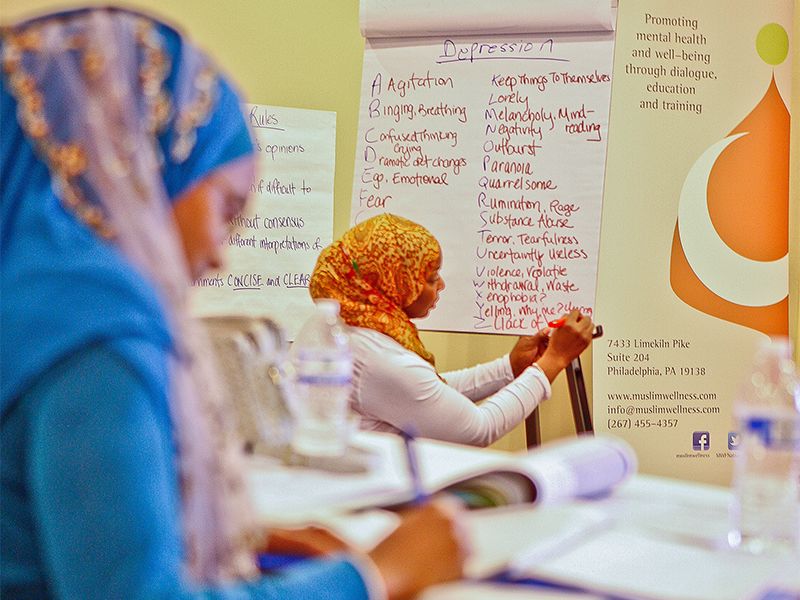
Muslims in the United States often turn to imams and other community leaders when experiencing mental health issues. Many conjecture that this is due to the stigma often attached to mental illness or worry that a Western-trained therapist might not be sensitive enough to their culture or religion.
Leaders of the Islamic Association of Raleigh, which draws thousands of worshippers a week, realized that this was a major issue in the community and one that needed to be dealt with in a more professional way. “Our imams get hundreds of requests every week,” says Muslim chaplain Azleena Azhar “It’s been very overwhelming for them. People are slowly finding out that if they don’t need to get advice from a religious scholar — they can come to the team and talk to someone there instead.” A new volunteer program at the mosque, encompassing mental health professionals (including a family therapist, chaplain and a substance abuse counselor), are reaching out to other members who may be in need of aid. And the services are all free of charge and confidential.
Shaykh Suhail Mulla is the Muslim chaplain at UCLA and says that cultural sensitivity is critical. For example, a woman wearing the hijab might be reluctant to seek out psychotherapy, thinking a therapist might encourage her to remove her hijab “and assimilate and be like everybody else and then you’ll be able to find a job,” he says. Mr. Mulla says he plans to launch a Los Angeles clinic that uses a “faith-based approach to mental health rooted in the science of psychology while integrating Muslim theological concepts.”
“When I see the people, having that opportunity to speak confidentially with someone, they feel better already, as soon as they meet with you,” says James M. Lyon, who is volunteering in the Raleigh mosque’s program. “They know someone’s advocating for them. You can just see that they’re thinking, ‘Hey, somebody is listening to me.’”



